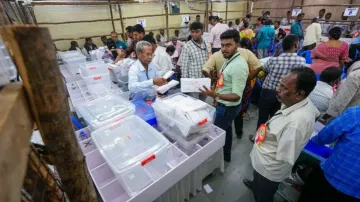The Election Commission of India (ECI) has announced the dates for the upcoming Assembly elections in Maharashtra and Jharkhand, with voting scheduled for November 20 in Maharashtra and in two phases on November 13 and 20 in Jharkhand. The results for both states will be declared on November 23. These elections follow the significant political shift witnessed in the 2019 Jharkhand Assembly elections, where the Jharkhand Mukti Morcha (JMM), in alliance with the Congress and the Rashtriya Janata Dal (RJD), ended the ruling Bharatiya Janata Party's (BJP) five-year tenure, signaling changing dynamics in regional politics.
Election overview
The elections aimed to fill all 81 seats in the Jharkhand Legislative Assembly. The voter turnout averaged around 65%, reflecting robust participation despite some logistical challenges.
Key issues
Several factors influenced the election outcome:
- Development vs. governance: While the BJP highlighted its development agenda, critics pointed to rising unemployment and agrarian distress.
- Tribal rights: The JMM emphasized the need for better governance and protection of indigenous rights, resonating with a significant portion of the electorate.
- Anti-incumbency sentiment: Many voters expressed dissatisfaction with the ruling government's performance, contributing to the BJP's electoral losses.
Election results
The results marked a substantial change in the political landscape:
- Jharkhand Mukti Morcha (JMM): 30 seats
- Bharatiya Janata Party (BJP): 25 seats
- Indian National Congress (INC): 16 seats
- Jharkhand Vikas Morcha (JVM): 3 seats
- All Jharkhand Students Union (AJSU): 2 seats
- Nationalist Congress Party (NCP): 1 seat
- Communist Party of India (Marxist-Leninist) (CPI-ML): 1 seat
- Rashtriya Janata Dal (RJD): 1 seat
- Independents: 2 seats
Vote share breakdown
- BJP: 33.37%
- JMM: 18.72%
- Congress: 13.88%
- AJSU: 8.10%
- JVM: 5.45%
- RJD: 2.75%
- BSP: 1.53%
- AIMIM: 1.16%
- CPI(ML-L): 1.15%
- NCP: 0.42%
Aftermath
Following the elections, Hemant Soren of the JMM was sworn in as Chief Minister on December 28, 2019, leading a coalition government with the Congress and RJD. Soren pledged to prioritize the welfare of marginalised communities and address critical issues such as employment and tribal rights.
However, Soren’s political career has been marred by accusations of money laundering, leading to his arrest earlier this year. Champai Soren briefly took over as the state’s leader following Hemant Soren’s arrest but later stepped down in July.
Champai Soren's resignation from the JMM in August and his subsequent decision to join the BJP—citing “disrespect” and “humiliation"— have added fuel to the political fire, potentially shaking the dynamics ahead of the polls.
The outcome of the 2019 Jharkhand Assembly elections not only reshaped the state's political landscape but also signaled a potential shift in national politics, as regional parties began to regain their influence amid changing voter expectations.
